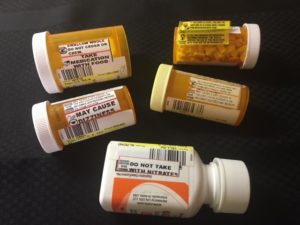Gov. Nathan Deal’s veto of legislation to allow PAs (physician assistants) to treat pain more effectively (Senate Bill 125) is an unfortunate setback for Georgians suffering from injuries and other medical emergencies. The bill would have permitted a PA to prescribe a five-day supply of hydrocodone, a common painkiller, as long as a physician with whom the PA practices has authorized the PA to do so in advance.

The governor’s veto means that patients with such painful ailments as broken arms and kidney stones will face unnecessary delays in getting the pain medications they need. They will have to wait for a physician to prescribe the medication, a lag that could be lengthy in rural areas where physicians are in short supply.
Prior to 2014, PAs in Georgia had the authority to prescribe hydrocodone. However, the U.S. Drug Enforcement Administration reclassified hydrocodone combination products from Schedule III to Schedule II in that year. Each classification, or schedule, indicates the drug’s potential for abuse. The higher the classification, the less potential for abuse and greater the accepted medical use. The federal reclassification had a direct impact on PAs’ ability to meet their patients’ needs because Georgia law allows PAs to prescribe only Schedule III through V medications.
That is why SB 125, the vetoed legislation, was so important, especially for rural Georgians. The measure was carefully limited in scope and was designed to deal with the challenge presented by the federal reclassification of the drug.
Georgia is in the extreme minority of states that limit PAs’ prescription authority. Forty-six other states, including all those that border Georgia, and the District of Columbia allow PAs to prescribe Schedule II medications. SB 125 would have allowed PAs to prescribe only a very small amount of hydrocodone combination products, in contrast to Georgia law prior to the medication’s re-classification, which allowed full prescriptive authority by PAs for this same medication.

PAs recognize the valid concerns that states have about over-prescribing of pain medications, and are keenly aware of the need for responsible prescribing. In response to the national opioid epidemic gripping the country, the American Academy of PAs (AAPA), the national voice of the profession, partners with the American Society of Addiction Medicine and the American Association of Nurse Practitioners to provide free online courses that educate PAs and NPs about addiction treatment.
In his veto statement, the governor asserted that authorizing PAs to prescribe hydrocodone compound products would “add several thousand prescribers” to the state’s health care system and, “as a result, create the potential for hundreds of thousands more opioid prescriptions to be issued” in the midst of the opioid crisis. However, this conclusion is misplaced and presupposes that all PAs would be prescribing these medications, as opposed to those most likely to need to do so, such as PAs working in emergency and urgent care, orthopedics, and oncology. Other PAs are no more likely to prescribe them than are many physicians, such as dermatologists, psychiatrists, and endocrinologists.
PAs diagnose illness, develop and manage treatment plans for their patients, manage their own patient panels, and often serve as the principal health care professional for patients. They work in all medical specialties and settings.
The broad, generalist medical education that PAs receive makes the profession uniquely flexible and able to adapt to the evolving needs of the U.S. health care system. The intensive PA curriculum is modeled on that used in medical schools, and PA students often take classes or have clinical rotations alongside medical students.

Based on annual federal data, the number of PAs continues to increase every year in nearly every jurisdiction. Even with this significant growth, the ratio of PAs being disciplined for professional misconduct continues to trend downward. When the discipline ratios of states that grant PAs full prescriptive authority are compared to those in states that impose restrictions, states with full prescriptive authority have lower discipline ratios over the past four years.
While a few states have passed or are considering legislation to place restrictions on the prescription of opioids, or alternatively, are imitating efforts to educate providers and patients to the dangers of overuse/abuse, it is worth noting that in no case are PAs singled out as provided in SB 125. All other states and the District of Columbia recognize the role of PAs as qualified medical professionals who are authorized to treat patients with such medications when conditions warrant. Nor is there any research that shows PAs would be more likely than other providers to prescribe hydrocodone.
PAs are a crucial part of the medical workforce. Governor Deal’s veto is regrettable and will harm patients in our state.
L. Gail Curtis, MPAS, PA-C, is president and chair of the board of the American Academy of PAs (AAPA).

